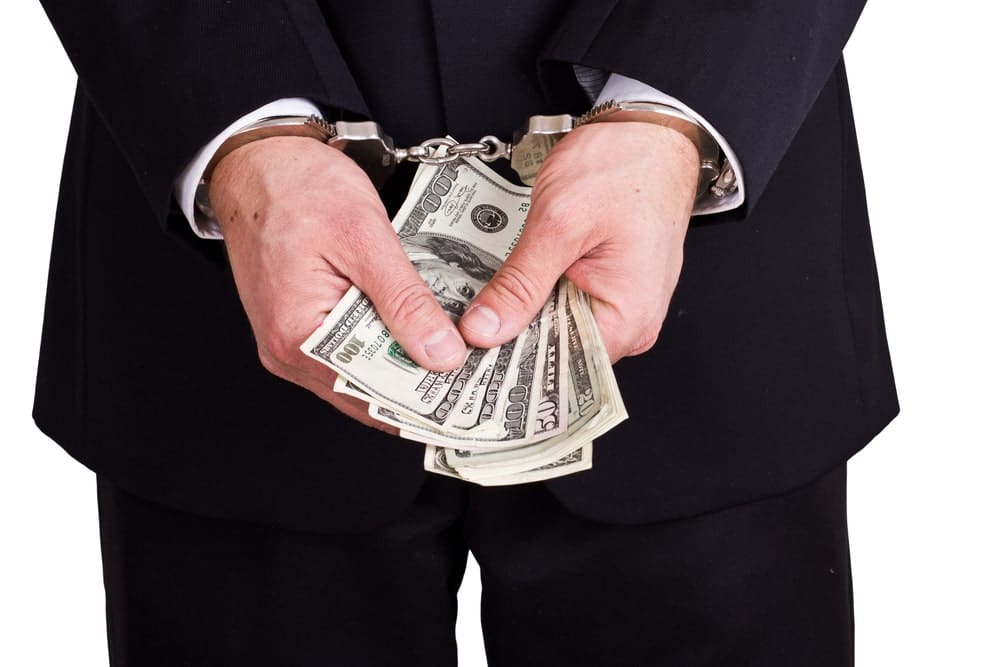Financial crimes can be among the most destructive to individual victims and to society as a whole. These crimes can also be among the most difficult to punish, because these crimes differ from other offenses in critical ways.
For instance, with financial crimes such as credit card fraud, there is no violence committed by the perpetrator, no form of assault, no harassment or other intimidation; but, though that may be true, it’s also the case that financial crimes can leave behind a truly devastating impact.
Consider the widespread financial devastation inflicted by the “Enron scandal” back in the early 2000s: even though the Enron top executives didn’t physically harm anyone, they still deserved harsh sentences because of the sheer impact of their actions. Thousands of Enron employees lost their jobs, and many lost their retirement accounts; justice demanded that the responsible parties be treated with some degree of harshness.
The State of Maine has laws on credit card fraud, debit card fraud, identity theft, and various other related crimes. In this post, we’re going to discuss these financial crimes by looking carefully at the current provisions in Maine law; we will conclude by pointing out the possible penalties for these crimes. If you’ve been charged with credit card fraud or any other financial crime in Maine, you likely need legal assistance right away. As we will see, these crimes are taken quite seriously in Maine, and consequently they can lead to tough penalties. The risk is simply too great to proceed without a qualified attorney.
Call 207-571-8146 or contact us online to schedule a consult with one of our highly skilled criminal defense & OUI lawyers, serving Southern Maine, today.
Table of Contents
Section 905-A: Misuse of Identification
The first crime we will examine is referred to as “misuse of identification,” a crime which is popularly known as “identity theft” throughout the country. Like other financial crimes, this crime requires a mental status (“mens rea”), as the perpetrator must intend to commit the offense to be guilty. In the State of Maine, it is illegal for a person to “knowingly or intentionally” do any of the following:
- use a credit card or debit card which has been stolen, forged, or otherwise obtained without authorization,
- use an account or billing number which the perpetrator is not authorized to use, and
- use any form of identification which the perpetrator is not authorized to use.
Not surprisingly, Maine law reiterates the mens rea requirement specifically in paragraph 2: a person accused on this crime may raise an affirmative defense that he or she acted in good faith, which means that this person genuinely believed that he or she had authorization to use a payment card or identification. However, as is always the case, this “good faith” requirement needs to be substantiated by evidence; an alleged perpetrator cannot simply claim good faith without any basis whatsoever. Consider the following scenario: a friend gives you his debit card to use to purchase food for the two of you; the friend gives full permission to use the card for that purpose. Then, after the purchase is made, you put the card back in your pocket. Subsequently, you decide to make another purchase before giving the card back to your friend, and during the process you accidentally make your purchase with your friend’s card as you attempt to grab your own card. In this hypothetical situation, the “good faith” requirement would almost certainly be met because clearly there was no intention to defraud the friend.
In our current society, with all the recent advances in technology, identify theft is becoming more and more diversified in its variations. These days, we see all sorts of new and increasingly elaborate schemes to defraud people and acquire confidential information. This is why, for instance, when tax season arrives there are typically many new forms of identity theft, such as sophisticated telephone-based scams, email scams, computer hacking, and so forth. Advances in cybersecurity are able to defeat some of these schemes, but fraudsters can be remarkably creative and persistent in their attempts to sidestep these barriers.
Section 905-B: Misuse of Scanning Device or Reencoder
The other fraud crime in Maine law is referred to as “misuse of a scanning device or reencoder.” This crime occurs whenever someone uses one of these devices to knowingly or intentionally credit or debit card information for the purpose of unlawfully extracting funds. We’ve seen this phenomenon recently in fast food chains, coffee shops, and other places which offer “drive through” service for motorists. In this scenario, the victim will voluntarily give the perpetrator his or her payment card, and then the perpetrator will use a device to record the payment card data for the purpose of committing the fraud.
This section also provides definitions for key concepts. For example, the term “payment card” is defined to include essentially every type of card which can store value and be used to conduct transactions; this means debit cards, credit cards, charge card, gift card, and so forth. The term “scanning device” is defined as any device (i.e. scanner, reader, etc.) which can be used to record payment card information. The terms “authorized payment card user” and “reencoder” are also defined.
Call 207-571-8146 or contact us online to schedule a consult with one of our highly skilled criminal defense & OUI lawyers, serving Southern Maine, today.
Other Financial Crimes in Maine
These two crimes – identity theft and misusing a scanner or other device – are far from the only two financial crimes here in Maine. There are plenty of other financial crimes which can be perpetrated. Here are a few other financial crimes currently recognized in Maine law.
Learn More → A Breakdown of the Various White-Collar Crimes in Maine
Embezzlement
The crime of “embezzlement” is really a variation of the crime of theft, but it has a particular meaning and application. The term embezzlement doesn’t just refer to unauthorized taking of property (the common root of all theft), but also refers to the process or manner in which this happens. Embezzlement occurs when someone commits an unauthorized taking while being a place of authority or trust, and represents the misuse of this authority or trust.
One of the most common manifestations of this crime occurs when an accountant or bookkeeper of a company intentionally manipulates accounting records for the purpose of transferring funds or property to himself or herself. Similarly, when a bank teller uses his or her position to electronically transfer funds from a customer account to a personal account, this is also an example of embezzlement. In the State of Maine, this crime is formally prohibited under Section 353 of Title 17-A and is called “theft by unauthorized taking or transfer.” In subsection 2 of this section, the Maine code even references the fact that this crime was previously known as embezzlement.
Mortgage Fraud
Mortgage fraud is another specific type of financial fraud recognized by the State of Maine. Consider this scenario: a person applies for a mortgage only on the strength of his or her own financial condition, and his turned down. Then, to overcome this dilemma, this same individual applies again and this time uses false documents to convince the lender that this person’s father will act as cosigner.
The applicant produces fake bank statements, earnings statements, and other materials to conduct this scheme. Ultimately, the lender grants the mortgage loan based on this false documentation. This would be a classic example of mortgage fraud, because the lender only granted the loan after receiving this false information. This type of financial fraud would be prosecuted under Title 17-A, Section 354, “theft by deception.”
Forgery
Forgery is another crime which is often perpetrated in order to gain an unearned financial benefit, and consequently can be thought of as a financial crime in most of its manifestations. Forgery is another variation of “theft by deception,” because it involves intentional falsification by the perpetrator. Consider the following scenario: a bank customer exits a bank and, while strolling through the parking lot, comes across a blank check which has been signed by the issuer.
Instead of turning the blank check over to the bank, the finder decides to input his name on the recipient’s line, and then inputs $5,000 as the amount to be paid. When the finder deposits the check, or attempts to cash it, he has committed forgery. Even though this hypothetical finder didn’t forge the check owner’s signature, he still altered the check without authorization in order to derive a benefit. This is a clear example of “theft by deception,” as there was a clear intent to deceive and extract a benefit from the deception.
Call 207-571-8146 or contact us online to schedule a consult with one of our highly skilled criminal defense & OUI lawyers, serving Southern Maine, today.
Punishments for Fraud & Other Crimes
For the crime of “misuse of identification” (under Section 905-A), a first offense is treated as a Class D crime in the State of Maine. This means that first offenses will be punished with up to 1 year in jail and also a monetary penalty no greater than $2,000. Furthermore, in addition to these penalties, the perpetrator may be required to return stolen funds acquired during the commission of the crime. For the crime of “misuse of a scanning device or reencoder” (under Section 905-B), a first offense is classified as a Class D crime as well, and also carries a maximum jail sentence of 1 year and a maximum fine of $2,000.
Both of the theft crimes we referenced (i.e. Sections 353 and 354) carry different penalties depending on the severity of the offense. So, for instance, for the crime of “theft by unauthorized taking or transfer,” the offense is classified as a Class B crime when the value of the stolen property exceeds $10,000; the offense is classified as a Class C crime when the value of the stolen property is greater than $1,000 but less than $10,000; for offenses involving stolen property of a value less than $1,000, the crime is a Class D crime. This same tiered classification system is used for the crime of theft by deception.
Contact the Maine Criminal Defense Group for More Information
These are not the only financial crimes in the State of Maine, and in the future we may come back and discuss a few other crimes which we weren’t able to mention today. For now, this should give our readers a decent sense of how Maine’s law operates when it comes to credit card fraud, debit card fraud, and several other related crimes. As we can see, Maine certainly takes these crimes seriously, and this is reflected in the possible penalties for such offenses. This means that someone accused of a financial crime should never gamble when it comes to combatting this type of charge.
The attorneys at the Maine Criminal Defense Group are well-versed in the area of credit card fraud and other related financial crimes. If you need assistance with an allegation, or simply need additional information, contact our firm today by calling 207-571-8146.
Call 207-571-8146 or contact us online to schedule a consult with one of our highly skilled criminal defense & OUI lawyers, serving Southern Maine, today.
Blog Posts

Today’s topic of discussion concerns the crime of theft of services. Now let’s take, for example, you go to your local auto mechanic. He fixes your car. You don’t like[...]

When most people think of “white collar” crime, they tend to think of the numerous high profile examples, such as the Enron scandal, or the insider trading scandal involving Martha[...]

Theft comes in many different forms, but every specific form shares the same general characteristic: the thief acts with an underlying intent to take property from its rightful owner. The[...]

You might think of robbery, theft, and burglary as near-identical crimes. Those offenses may result in a similar outcome for the victim – loss of property or assets – but[...]

An increase in shoplifting offenses in Chicago has many business owners pointing fingers at the district attorney there, who had changed her office’s policy to reduce the number of felony-level[...]

A Maine native was recently arrested for shoplifting in New Jersey. The details of his arrest highlight an important issue with Maine’s shoplifting law: even empty accusations of shoplifting can[...]

Over $100,000 in merchandise was taken from a jewelry store in Farmingdale back in early August. The incident highlights the difference between shoplifting and some more severe criminal charges like[...]

The recent mass shooting in El Paso has boiled over into a larger discussion of the strain that Walmart stores put on their local communities, particularly local police departments. With[...]

A general overview of the crime statistics in Maine paints an interesting picture of law enforcement throughout the state. A key takeaway of those statistics, though, is that shoplifting is[...]

A report of shoplifting has snowballed into far more severe criminal allegations for a teenager in Aroostook County. Now he is being charged with drug possession and other offenses related[...]


